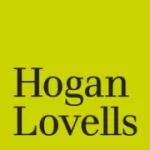The Court of Appeal has today upheld a decision of the High Court that legal advice privilege applies only to legal advice given by a lawyer and not where the advice is given by a non-lawyer, for example, an accountant.
The issue arose in relation to a claim for judicial review by Prudential PLC and its subsidiary. Prudential challenged notices served by HM Revenue & Customs which sought disclosure of advice from its tax accountants on a commercially-marketed tax avoidance scheme. Prudential argued that these documents were covered by legal professional privilege ("LPP"), essentially on the basis that the clients of accountants, when being given skilled legal advice about tax law, should be able to rely on LPP in the same way as they would, had the advice been given by a qualified lawyer.
In the High Court, Charles J dismissed the challenge, on the basis that the court was bound by precedent, in the form of a Court of Appeal decision which made clear that, for LPP to apply to legal advice, that advice has to be given by a member of the legal profession (other than when litigation is contemplated). Prudential appealed and today the Court of Appeal dismissed the appeal.
Lord Justice Lloyd, giving the leading and only judgment, held that legal advice privilege does not apply to accountants and other professionals outside the legal profession. Lloyd LJ said that:
"I consider that this court is bound to hold that LPP does not apply, at common law, in relation to any professional other than a qualified lawyer: a solicitor or barrister, or an appropriately qualified foreign lawyer...
Even if we were not so bound, I would conclude that it is not open to the court to hold that LPP applies outside the legal profession, except as a result of relevant statutory provisions. It is of the essence of the rule that it should be clear and certain in its application, since it is not the subject of any ad hoc balancing exercise but is, to all intents and purposes, absolute. As applied to members of the legal professions, acting as such, it is sufficiently clear and certain. If it were to apply to members of other professions who give advice on points of law in the course of their professional activity, serious questions would arise as to its scope and application...
In my judgment, only Parliament can provide the answers to such questions as these. It is not a proper task for the courts to undertake."
It is highly likely, given the importance of the issues involved, that Prudential will seek leave to appeal to the Supreme Court. For the time being, however, taxpayers who obtain tax advice from accountants and other non-lawyers have less protection against having to disclose this advice to HMRC than if they had obtained similar tax advice from lawyers.
The content of this article is intended to provide a general guide to the subject matter. Specialist advice should be sought about your specific circumstances.

